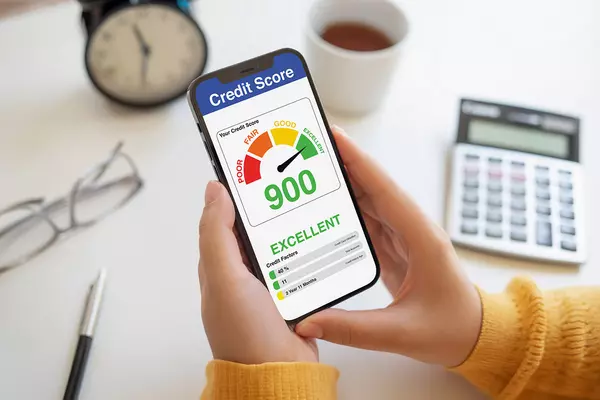Mortgage Preapproval vs. Mortgage Prequalification
Wondering what the difference is between a Mortgage Preapproval and a Prequalification?
When you decide to buy a home, you’ll have to go through an extensive lending process. For many homebuyers, this can be unfamiliar territory, leaving you with questions about the difference between mortgage preapproval vs. prequalification. Here’s what you need to know about the preapproval process and how it differs from prequalification.
How Does a Mortgage Preapproval Work?
A mortgage preapproval and mortgage prequalification are both types of mortgage approval. In fact, it’s not unusual to hear some lenders use the terms interchangeably, but there is a difference. During the preapproval process, your mortgage lender will perform a fairly deep dive into your financial information to assess your overall situation.
The preapproval process looks different from lender to lender, but you’ll typically need to submit a formal loan application and provide details such as:
- Your household income
- Your savings
- Your existing debt (e.g., credit cards or student loans)
- Your personal credit score
To do this you’ll need to show tax returns from the past two years, as well as bank statements, pay stubs, and other documentation. The lender will evaluate this information to determine the type of loan you can receive, as well as the interest rate and terms. This process is usually quite fast, and you should receive a preapproval letter in a matter of days. However, your loan terms are not official just yet.
A preapproval won’t become official until your loan goes through underwriting and receives final approval from the lender. It’s not uncommon for lenders to adjust loan terms if there are errors or discrepancies in your financial data.
How Does a Mortgage Prequalification Work?
So what is the difference between preapproval and prequalification? The prequalification process is usually much simpler and doesn’t require any sort of formal application or even a credit check. Instead, homebuyers can receive a quick response from the lender, which gives them a general estimate of how much they may be eligible to borrow.
This initial approval doesn’t carry the same weight as a viable approval and can’t be used to make an official offer on a home. If you do find a home after prequalifying, you’ll need to go through the preapproval process before the seller takes you seriously. This is why you should consider a preapproval instead of just a prequalification. Still, prequalification gives you a quick snapshot of your finances and can be a great start in the house-hunting process.
How Long Does a Prequalification Last?
Since a mortgage prequalification is a general estimate, it doesn’t have a formal expiration date as does a preapproval. A prequalification doesn’t enable you to make an offer on a home, nor can it be used in any formal way to secure actual financing.
The prequalification should be thought of as a quick snapshot, highlighting your financial situation at the present moment in time. In order to keep moving through the lending process, you’ll need to move on to the preapproval process, which will involve a deeper evaluation of your credit history, finances, and other information. So a prequalification is mainly a tool to help homebuyers and lenders gain a quick understanding of their financial prospects.
How Long Does a Preapproval Last?
A mortgage preapproval letter will only be valid for 30 to 90 days, depending upon your specific lender, as exact terms can vary depending on the lender. After this time, your preapproval will expire.
Other things besides expiration that can affect your preapproval letter include
- Major changes in your income or debts
- Changing jobs
- Altering your investments
- Depleting your savings
For most homebuyers, this means that you may want to wait to obtain preapproval until you’re ready to commit to the process of finding a home.
Will a Preapproval Affect My Credit Score?
A mortgage preapproval involves a hard credit inquiry, which typically reduces your credit score. Fortunately, this credit check will only cause your score to dip by five points or so, but it’s still a factor to consider. This also means you don’t want to let your preapproval letter expire, since expiration means that reapplying will require another credit pull and will lower your credit score even further.
You may want to limit the number of lenders you apply to when seeking preapproval. It’s always good to apply to around three different mortgage lenders so that you can compare rates and terms, but make sure to factor in the hit you’ll receive on your personal credit score.
A Prequalification doesn’t involve a hard credit inquiry, and therefore, it has no impact on your personal credit score. Still, make sure to check with your lender before seeking prequalification, as some lenders will use the terms preapproval and prequalification interchangeably.
If you're thinking about buying a home, let us know. We can help connect you with some great lenders and get the financing aspect going for you!
Categories
Recent Posts










MEET OUR TEAM
Our team of agents are ready to help you reach your real estate goals by making your needs our number one priority. We recognize you have a choice when it comes to working with a real estate professional. Our team of agents looks forward to earning your trust and helping you discover the smarter way to buy or sell a home.








